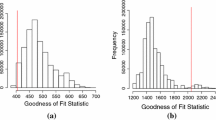Abstract
Social networks are a pervasive phenomenon. While commonly exploited in industry, they are still largely unexplored from the scientific point of view, leaving a huge application potential unexpressed. Their study is hardened by two important factors: the high complexity of the systems at hand and the large amount of data to be considered. In this work we propose Integer Linear Programming (ILP) models to analyze the diffusion of knowledge through social networks. We assume a set of individuals and a set of topics to be given. Each individual has a certain level of interest and skill on each topic, that change through interactions with other individuals. Links among individuals evolve according to these interactions. As shown in the literature such a phenomenon well represents the dynamics of opinions, relationships and trust. Our ILP models are suitable for both predictive and prescriptive analytics. In particular, they can be used (a) to predict the skill level on each topic for each individual, by taking as data a sampling of the status of network links during a certain time horizon (b) to predict the status of network links, by taking as data a sampling of skill levels (c) to indicate which individuals affect most the network when their own skill is artificially increased (d) to indicate which missing links would improve the average skill level of the network. We present computational results, exploiting a simulation tool from the literature, and considering networks with up to fifty individuals, twelve topics and thousands of time steps. These show that out ILP approach is computationally viable also on large scale data, requires very few parameters to be tuned during training, and provides results of reasonable accuracy, especially in tasks (a) and (c).
Similar content being viewed by others
References
Allodi, L., Cremonini, M.: Self-organizing techniques for knowledge diffusion in dynamic social networks. Complex Network V, pp. 75–86. Springer, Heidelberg (2014)
Bertsimas, D.: Statistics and Machine Learning via a Modern Optimization Lens. P. Morse plenary lecture at INFORMS conference, San Francisco (2014)
Guille, A., Hacid, H., Favre, C., Zighed, D.A.: Information diffusion in online social networks: a survey. Sigmod Rec. 42(2), 17–28 (2013)
Skutella, M.: An Introduction to Network Flows Over Time. Research Trends in Combinatorial Optimization, pp. 451–482. Springer, Heidelberg (2009)
Acknowledgements
The work has been partially funded by Regione Lombardia/Fondazione Cariplo, Grant agreement no. 2015-0717, project “Towards Research on Decomposition Methods for Next Generation Analytics (REDNEAT)”.
Author information
Authors and Affiliations
Corresponding author
Editor information
Editors and Affiliations
Rights and permissions
Copyright information
© 2017 Springer International Publishing Switzerland
About this paper
Cite this paper
Ceselli, A., Cremonini, M., Cristofaro, S. (2017). Models and Methods for the Analysis of the Diffusion of Skills in Social Networks. In: Dörner, K., Ljubic, I., Pflug, G., Tragler, G. (eds) Operations Research Proceedings 2015. Operations Research Proceedings. Springer, Cham. https://doi.org/10.1007/978-3-319-42902-1_64
Download citation
DOI: https://doi.org/10.1007/978-3-319-42902-1_64
Published:
Publisher Name: Springer, Cham
Print ISBN: 978-3-319-42901-4
Online ISBN: 978-3-319-42902-1
eBook Packages: Business and ManagementBusiness and Management (R0)




